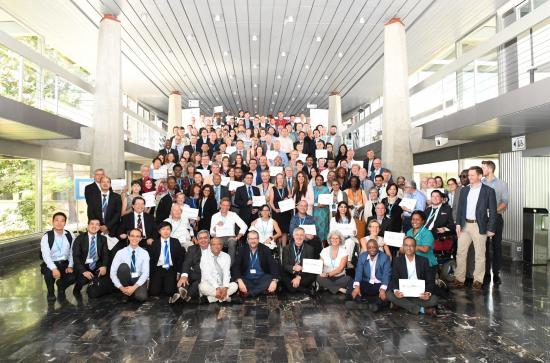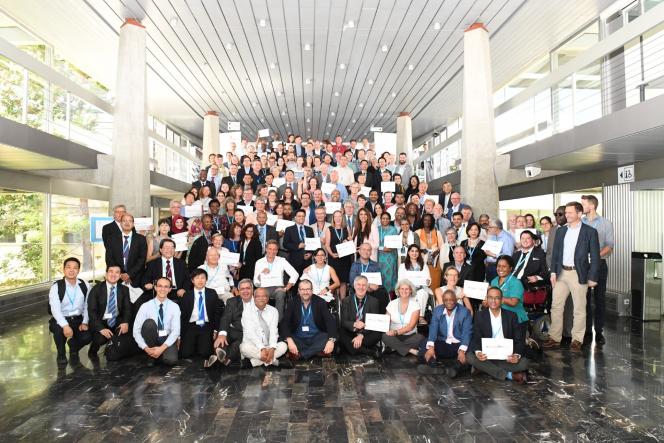
Last month in Geneva the World Health Organisation (WHO) hosted the first GREAT (Global Research, Innovation & Education on Assistive Technology) Summit. Three staff from the Department of Psychology were among the 200 experts who attended: Professor Mac MacLachlan (Summit Co-Chair), Dr Deirdre Desmond, Senior Lecturer and Dr Fleur Boot, ASSISTID Marie Sklodowska-Curie Post-Doctoral Researcher. The Summit sought to plan new initiatives and take stock of recent development in the field; including the priority Assistive Product List (APL, 2016) and Global Research Agenda (2017); which Professor MacLachlan was involved in developing through his role as Research and Innovation Coordinator for WHO's GATE (the Global Cooperation on Assistive Technology) programme, which now incorporates more than 900 members from around the world.

Professor MacLachlan said “Assistive technology is of interest to a wide range of researchers from a number of different departments at Maynooth University, and to our colleagues in the Maynooth Access Programme. In fact, I think we have a truly unique combination of breadth and depth on assistive technology at Maynooth, and I hope that we can harness this to make a significant contribution - both nationally and globally - to the aspirations of the GREAT Summit and the continuing work of GATE.
With Ireland the only EU country to yet ratify the United Nations Convention on the Rights of People with Disability (UNPRPD) the government has made a renewed commitment to do this before the end of the year. Once ratified the UNCRPD will give greater impetus to the need to provide better systems for assistive technology provision within Ireland. As one of the co-sponsors of the Assistive Product List, Irish Aid also supports such provision in low- and middle-income countries. Professor MacLachlan said that “with ageing populations and rapidly increasing demand for assistive products both at home and internationally, assistive technology is likely to be a major priority in Ireland over the next decade”.
An assistive product is “any product (including devices, equipment, instruments, and software), either specially designed and produced or generally available, whose primary purpose is to maintain or improve an individual’s functioning and independence and thereby promote their wellbeing”. Assistive technology is relevant to all people who experience physical or psychological impairments, in whatever realm, and at any age: this includes people with disability, those with non-communicable diseases, those with mental health conditions (including dementia and autism), older people and those who experience gradual functional decline, or frailty. The globally ageing population ensures that the number of people who can benefit from assistive technology is certain to increase; from what WHO currently estimates to be around 1 billion; to an estimated 2 billion plus, by 2050.Yet, even for the present1 billion people who could benefit from assistive technology, WHO suggests that only around 10% of them have access to such technologies.
